A Palestinian Quaker’s Perspective On The War In Gaza
On our final episode of Season 2, we sit down with a US-based Palestinian Quaker who works with refugees. He shares what it was like to grow up in Palestine under Israeli occupation, his views on pacifism in the midst of the Israel-Hamas war, and how he’s trying to live out his Quaker faith.
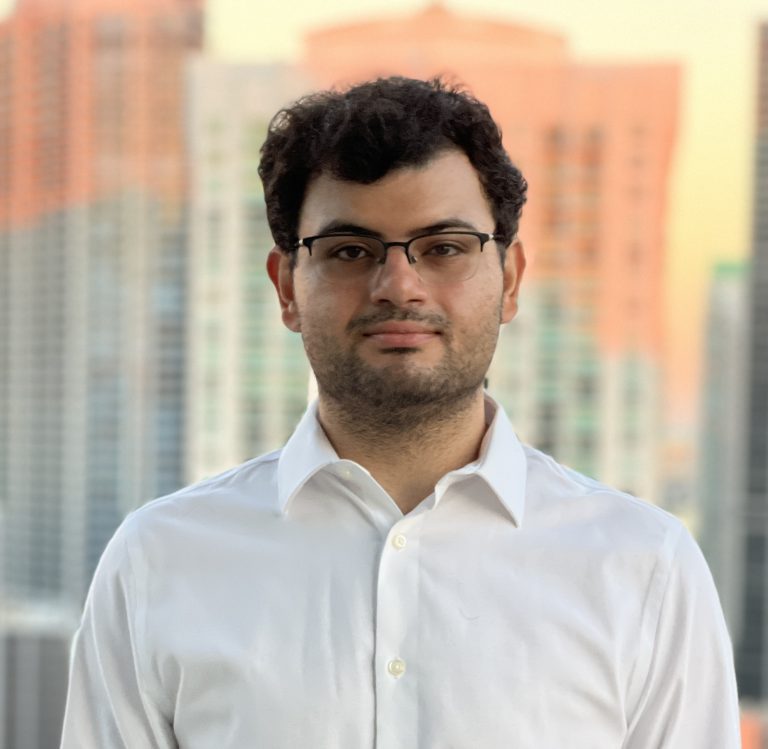
We know this is a complicated topic, and this episode presents just one person’s perspective. We welcome listener comments and ways that you are navigating this topic as Friends. Please leave your thoughts below.
Subscribe so you don’t miss an episode!
Download the transcript and discussion questions.
Discussion questions
- Walid said it’s “not okay to compare the violence of the oppressed on the same level with the violence of the oppressor.” How did that sit with you?
- For Walid, worship since the war started has been less focused on silence and more focused on action. How can action or service be a form of worship?
Walid: It smells like a new Mediterranean adjacent town. You know, the smell of jasmine, the olives, thyme, especially in the spring. And then there’s the smell of sewage because Palestinian cities do not have access to infrastructure that allows them to clean sewage. And then there is, of course, the smell of tear gas, which is very common because tear gas is a daily occurrence in Palestine.
Various: Thee Quaker Podcast: Story, spirit, sound.
Georgia: I’m Georgia Sparling.
Jon: And I’m Jon Watts.
Georgia: And this is the last episode for season two.
Jon: It’s the last episode, yeah, so, wow, so Georgia. This has been a really big season.
Georgia: Yeah, it’s been jam packed.
Jon: I’ve, you know, I feel like we took our listeners and on a journey and and we kind of went on a journey ourselves.
Georgia: Yeah, it definitely felt like a high wire act, sometimes interviewing people across I think, at least five different time zones from a variety of Quaker traditions and about topics that were often very new territory for me.
Jon: You did cover a lot of ground. I mean, our so our teammate Hannah, went to Kenya to report on Friends there our four more board member Navid, got to sit down with the world renowned astrophysicist Jocelyn Bell Burnell. That was in the UK.
Georgia: Yeah, and although we didn’t go to Asia, one of my favorite episodes to research was our China episode, and learning about the mostly forgotten missions of Friends to China.
Jon: Right. Yeah, that one was a new topic to me. You know, I’m so I’m also so grateful for some of the folks that we got to talk to this season. I mean, getting Carrie newcomer on the show was a bucket list item for me, and that was such a rich conversation.
Georgia: And I love talking to Brent Bill and just getting to sit with him in his office/library space was really special. We also asked a lot of big Quaker questions this year.
Jon: Yeah, what do Quakers believe? What do Quakers wear? Two notable episodes.
Georgia: Yeah, the “What Do Quakers Wear?” episode was definitely another favorite of mine to report on, and if you haven’t listened to that one, I highly recommend it. Our guests this season were just so great, and they had so much nuance in their approaches to the questions we asked them. And you know, while we’re on this trip down at Memory Lane, I have to mention our focus on civil rights, like getting to talk to people who are in the thick of the civil rights movement, like that was a real career highlight for me.
Jon: Yeah, I loved the Bayard Rustin episode. It was so nice to hear from folks who knew him and also actually hear Bayard’s voice on that episode. I felt like it really brought the story to life.
Georgia: Oh, yeah, I know. I love when we can do that. And we haven’t even mentioned our vocal ministry episodes yet. We had so so many great ones.
Jon: Yeah, we had a sermon from a Kenyan pastor and a message on Christianity and colonialism. You know, along with many more, it’s so meaningful to be able to go visit these meetings and see how the Spirit is moving in each of those places.
Georgia: Yeah, I do really always look forward to the variety of messages that we get from those Friends, and also just the variety of topics that we cover on the Quaker podcast. And to continue to do that, we do need a little break.
Jon: Indeed, it’s time for a break. Yeah, the next few months, we’ll be on hiatus from our regular schedule so that we can have some space to work on stories for season three.
Georgia: Yeah, we’re a very small team, so this time gives us the opportunity to evaluate season two, to plan a fresh slate of episodes, do research, log interviews, to work on a few bonus episodes too, that’ll pop into your feed between now and February.
Jon: Yeah, so we won’t completely disappear from your main feed, and you know, if you’re a monthly supporter, you’ll also get a few extras from us over the next few months.
Georgia: Ok. All that said. We do have an episode to introduce to you today, and this is a really timely one. I don’t need to tell you all that there is a war happening right now in Israel-Palestine. We wanted to address the war in some way and our friend Max Carter put me in touch with Walid. He’s a young Palestinian Friend who grew up in Ramallah, Palestine. His mom is the head of school at Ramallah Friends School…and he’s been living and working in the US since college. I actually spoke with a few people on this topic, but ultimately I decided I wanted to devote this episode to my interview with Walid because of his unique perspective — he’s a Quaker, he’s Palestinian, and he’s well acquainted with Western perspectives on Israel and Palestine.
So, in my interview we covered a lot of ground in a short period of time — how the war has affected his spiritual practice, Walid’s perspective on war and violence as both a Quaker and a Palestinian, how Palestinians are doing in the face of ongoing violence and uncertainty, and more.
I have to say, I’m really nervous about sharing this episode. This topic is so charged and as you’ll hear in Walid’s own words – it’s really hard to communicate a non-violent conviction amidst the reality of what is happening there. I guess I just would ask that people listen and not react, but to listen and respond.
I also want to say that this isn’t the last time we’ll talk about this issue. I know there are many Friends who are actively working for peace in Israel-Palestine, so please leave us a message via the contact form on our website if you have recommendations for other people you’d like to hear from.
Jon: Yes, thank you for that intro Georgia. I’m sure we will get comments, but that’s not a reason to not do a story, so thanks for pursuing this. I’m looking forward to hearing from Walid.
Georgia: Yeah so let’s get started.
Walid: My name is Walid or Walid for the Anglo speakers, an easier way of pronouncing. I am an immigrant. I am the grandson of refugees, Palestinian refugees. And I’m Quaker. And I was born into a Palestinian Christian family. And so I like to call myself someone who belongs to an indigenous Christian community, which is a term I’m trying to popularize.
I work for an organization called Every Campus a Refuge, which is incubated at Guilford College, my alma mater, and where I’m pursuing an MBA right now. Every Campus a Refuge is an organization that works on refugee resettlement through higher education.
And it’s not only pertaining to student refugees, which we do, but also through co-sponsorship where we partner universities in a chapter grassroots-like model with local resettlement agencies to host non-enrolled cases on campus.
Georgia: So yeah, so tell me a little bit about your growing up. Where did you grow up and what was that like?
Walid: Yeah, so I was born in Amman, Jordan, but my family moved back to Palestine when I was about five, I believe. I think that there was promise of more peaceful times coming ahead with the signing of the Oslo Accords and the potential for a peace process, bringing prosperity at the time. And so my parents were lured back to Palestine after having left during the first intifada.
Georgia: I’m just gonna pop in and give some context. “Intifada” means “uprising” in Arabic and the term has been used for two extended periods of unrest and protest of Israel’s occupation of Palestine. The First Intifada was in the late 80s and the second was in the early oughts. In between the intifadas were the Oslo Accords. These were agreements signed between Israel and the Palestinian Liberation Organization in 1993 and 1995 that were meant to encourage peace talks and eventually lead to a two-state solution. That obviously never happened.
Ok. Back to Walid.
Walid: As a result, I grew up in Ramallah. I attended the Ramallah Friends School did my elementary education there as well as my high school, although I did have a brief stint in the United States where my mom was pursuing her master’s degree at Westchester University in Pennsylvania.
And then I came back to the U.S. as an undergraduate at Guilford and I’ve been here ever since. So it’s been, I’ve almost lived half my life in the United States.
Georgia: So tell me a little bit about Ramallah. How big is it? What is it like? Would you paint a picture?
Walid: Yeah, Ramallah is a village that turned into a city overnight in 1948 because it went from being a northern affluent suburb of Jerusalem that particularly attracted Christian Palestinians because it was a predominantly Christian village to a center for political, social, cultural hot spot for Palestinians after 1948.
Ramallah today, it’s a cosmopolitan city. It’s very diverse. It is also the place where most international organizations that are working on Palestine related issues headquarter typically. It’s a mix of old and modern. So it’s, you’ll see Dubai like buildings straddled next to buildings that were built in the 1500s.
It just rises out of an olive field and then a refugee camp and then an ancient Christian mausoleum from the first century, from the first century AD, and then, you know, a random checkpoint here and there. And so that’s kind of what Ramallah looks like.
It smells like a new Mediterranean adjacent town. You know, the smell of jasmine, the olives, thyme, especially in the spring. So if you’re hiking through the hills of Ramallah, there’s like lot of fragrances while you’re walking. It kind of feels like you’re walking through an herb garden. So mint and sage are wild and common. And if you’re stepping on them there while you’re hiking, it’s going to smell. But then of course, there’s the smell of sewage because Palestinian cities do not have access to infrastructure that allows them to clean sewage. And then there is, of course, the smell of tear gas, which is very common because tear gas is a daily occurrence in Palestine and in all cities. And of course, the smells of our amazing cuisine. That’s kind of Ramallah in a nutshell.
Georgia: There was not always the smell of tear gas ever present in Ramallah’s atmosphere, there have been times of quiet, yet Walid even in less fraught periods, there has been persecution and discrimination against Palestinians, even in some religious spheres.
What was it like to grow up Quaker?
Walid: Yeah, yeah, there isn’t a big Quaker community in Palestine. There are two schools and a meeting house. There is a long Quaker legacy in Palestine and Quakers are known in Palestine. But I will say that I was actually born into a Greek Orthodox family. And I honestly feel like I’m a lifelong Quaker, but I wasn’t born into an officially Quaker family. But I grew up going to meetings whenever it was possible. And in Palestine, Quakerism is really understood through a lens of Christianity rather than here in the East Coast, particularly in the Northeast, it’s more understood through this secular spiritual lens. But I think what’s interesting about Quakerism in Palestine is that unlike how in the United States when Quakerism is seen through a Christian lens and therefore assumed to be conservative.
n Palestine, the Christian lens that informs Quakerism, and I will say this is also a perception of the public, not of the Quakers in Palestine, kind of allows it to understand Christianity through a liberatory perspective because the Palestinian Church, which is the Greek Orthodox Church, is dominated by Greek clergy that deny Palestinians from assuming positions of power in the church because of the real estate that the Greek Orthodox Patriarchate controls, and that includes large plots of land and property.
The liberatory practice of Christianity in Palestine has been assumed by churches that in the United States are seen more as conservative.
I grew up knowing that I belong to a community that is rooted in this religion that’s like, the world’s biggest religion. And I knew that it was an export of my homeland, but I never understood what that meant until I came to the United States and I saw what Christianity is, how Christianity is practiced.
And then I also understood the influence of Quakers more here in the U.S. than just in Palestine. And it kind of gave me a much more deeper understanding of how Christianity has been kind of weaponized for empire and how in Palestine there’s a lot of, there isn’t the same imperial understanding of Christianity that you see in mainstream Christianity today. And it’s also what helped me choose to be Quaker because I understood Quakerism as a place where I can remain spiritual and connected to Christianity without necessarily feeling the confines of a rigid, traditional, orthodox church, but I still get to be a part of this ancient community and still get to practice the values of that community that I genuinely believe came from the ways the people in my homeland tried to resist empire over two millennia.
Georgia: So tell me about when you heard that Hamas had attacked Israel and how did you hear about it and what was your immediate response?
Walid: I first heard about it on Instagram because there was a conference at Wake Forest University that I was helping organize. And in one of the breaks, I was like, well, instead of listening to the session, I’m just going to go check out my Instagram feed, And as I was scrolling, started getting people, like these images of people in Gaza having broken through the fence, the barrier. And it was still like preliminary, like there wasn’t much information about what was going on, the violence. But when that happened, there was…I felt like this weird sense of joy. It was joy because I was like, wow, these prisoners have broken free. I had assumed that this actually had to do with the protests that had been going on for a few years, the March for Return, because there have been many protests at the border by Palestinian refugees in Gaza demanding their right of return. So that is returning to their lands that they were kicked out from. So I assumed that somehow they were able to break through the fence. I was really both excited for them and proud of them because that’s what I thought they did. They were just able to tear through the fence. And then more and more news of what was going on started to appear and having known that something like this has never happened before, there was a part of me that just didn’t believe it.
And then as the picture started getting clearer and clearer about what’s going on, realizing that this is really, really bad and it’s going to cause really bad ramifications. And so that sense of joy quickly evaporated.
I think that I wanted to make sure that people understood that what happened was not unprovoked, which is what the mainstream media continues to try to position as if what happened on October 7 of 23 kind of came out of nowhere, out of a blank. I think that I was also afraid because I knew what it was like to be Arab and someone who’s assumed to be Muslim, you even though I’m not Muslim. I am still subject to Islamophobia because of anti-Arab and anti-Muslim hatred, but particularly anti-Palestinian hatred, which is an even more accepted form of discrimination here in the United States.
I think there was also a fear of what those consequences would be for me here in the US, not just for my family back in Palestine, for the people in Gaza, or the wider region and everything that’s going on across the Middle East, from Iran to Lebanon to Egypt even. I was also immediately jolted by the fact of remembering what happened in the United States post 9-11 in 2001 and wondering whether that’s going to be applied again.
Georgia: It’s obvious that Walid has had to deal with a lot of heaviness over the past year while also trying to communicate his perspective on Palestinian resistance, which is a complicated and nuanced issue, and he’s done that even as he worries about family and friends that are still in that region.
Walid: I have to wrestle with all these different feelings because on the one hand, I understand that the root of this violence that occurred on October 7th came from a deep, deep, deep sense of injustice that has compounded over decades. On top of the fact that, you know, violence and nonviolence within any liberation movement is on a spectrum and it is that the whether a liberation movement engages with nonviolence or violence has is directly related to how the oppressor or the oppressing regime are the responding to the liberation movement and so typically, the more violence used by an oppressive regime, whether it’s daily physical violence or just the wider systemic violence, and then the more violent the response that pushes a liberation movement more and more towards violence.
And so as you’ve seen throughout the past few decades, Palestinian resistance has gone from mostly nonviolent in the first intifada, and then even within the first intifada it went from people doing social actions and like basketball games for Palestine or protests. Then they moved a bit towards rock throwing and then Molotov cocktails and then because of the break their bones policies that were implemented by the Israeli military at the time.
Many of the people were not very happy with the response of the more secular, more nationalist Palestinian parties and saw that they needed to do more violent things. And that’s how Hamas was born. And Israel certainly encouraged it because it wanted to splinter Palestinian liberation movement. And then I wanted people just to know that it’s both some. Hamas is not ISIS. Palestinians are not inherent bloodthirsty folks. If what happened was not was not okay, but at the same time, I wanted people to understand, and at the same time, I wanted to say it in such a way that didn’t necessarily made it seem like I was compromising on my values as a Quaker, as someone who truly believes in nonviolence as the path towards liberation, or that there is inherent value in everyone’s life. I did not want to seem like I’m condoning the murder of Israelis at the time, but I also did want to combat the media lies fabricating the genocide, or fabricating the narrative that will justify what has become a genocide since October of last year.
It was a difficult thing to balance because we know for a fact that Hamas did not put babies in ovens, but that does not mean children were not killed that day. We also know, for example, that there wasn’t mass rape the way that the US government and the Israelis alleged, but there were incidents of sexual assault,
There was a lot of chaos and I wanted people to know like, rape in war and sexual assault in war is a direct result of the just how patriarch, like war is the most extreme expression of patriarchal violence. And so regardless of whether the sexual assault was exerted by liberation movement or by the oppressive regime, both are rooted in this incredibly violent ideology, which is the patriarchy. And so, you know, I just wanted more and more nuance, but it’s so hard to see nuance when people just are so okay with engaging in discourse that dehumanizes Palestinians and are so willing to repeat narratives that were false and continue to be regurgitated across all levels of government here in the United States, whether it’s the presidential debates by both sides of the aisle, the Democrats and especially the Republicans, but also the Democrats, especially the ideologues, the older generation of Democrats like Biden, who really is going to go down as one of the most violent presidents in American history for his actions in spreading violence across the world, whether it’s in Ukraine or in Palestine or in Yemen or in Sudan.
As a Quaker, it’s very, very hard for me to see other Quakers, and especially at a time when, there’s a threat to democracy in the United States, not have that same critical lens. And certainly as a Palestinian, it’s very personal for me.
Here I am trying to wrestle with trying to ensure that the narrative about what’s going on is not false and does not lead to justifying the genocide that’s going on in Gaza. At the same time, I didn’t want my expression of these or clarifications to come across as if I’m condoning or justifying the violence, but also I didn’t want to engage in discourse that in any way tried to say that the people in Palestine didn’t have a right to resist.
As long as we live in a world where violence has legal pathways within the international system, I fundamentally believe that Palestinians have a right to use violence for resistance and it’s an enshrined right. And so in talking about how I as a Quaker don’t believe in violence also somehow put my people in a position where I’m trying to say that we are evil because they are using violence. And of course, I’m not talking about the specific war crimes because a liberation movement doing war crimes does not make it any less of a liberation movement, but does not make the war crimes any less of war crimes. so, It’s this constant back and forth of just trying to make people know that I’m safe. And while at the same time trying to create the narrative that ensures that my people have a right to live and the right to be human and the right to exist in this world and be free. And so it’s a very difficult thing to juggle.
Georgia: During our interview, I could hear (and probably you can too) how difficult it’s been for Walid to balance these two identities — one being Palestinian and understanding what it’s like to live with the constant threat of violence and the unfair treatment of his people but then also as someone with deeply held Quaker beliefs, including the peace testimony. And top of all of that he’s also trying to figure out how to express himself clearly and effectively in the US as someone who faces anti-immigrant and anti-palestinian attitudes — so everything he says has to have a disclaimer or an explanation so he can make himself, to the best of his ability, understood. This is on top of the reality of what is happening in Palestine every day. So let’s take a break and then we’ll be back to hear more from Walid.
As we said at the top of the show, this has been a big year for the podcast. And it’s through our donors and monthly supporters that we’re able to make this show a reality. It’s how we’ve been able to travel to multiple locations and countries over the past two seasons to share important and fascinating and timely Quaker stories.
While this season is ending, we’re not done yet by any means and that means we still need you. Would you consider becoming a monthly donor of Thee Quaker Podcast? It’s easy. You can start with $5 or $10 a month. In addition to helping us continue this podcast, you’ll also get access to a few exclusives from us, including insider updates.
If you value this podcast then we hope you’ll consider partnering with us by going to QuakerPodcast.com and click Support at the top of the page. If giving financially isn’t possible right now, we totally understand. And you can still help us expand our listenership by sharing an episode with a friend and by leaving a positive review on Apple Podcasts.
Now back to the show.
Have you been able to go back since October of last year?
Walid: I want to. I’m not sure if now is the best time to go. One of the fears is not just the physical violence that’s going on, but also when are things going to turn for the worst and how, and not wanting to get caught in that. In the previous years we were experiencing genocide, but I like to use the term that Ilan Pappé coined for what we were experiencing, which is incremental genocide, in the sense of like there’s this dilution of these acts of essentially erasing a population, but it’s done over such a long period of time that not only is it normalized, that there’s like, you know, five to 10 people being killed every single day, but also, and then their lands are being taken and all of that stuff that come with genocide and their culture being erased and stolen. According to him, incremental genocide will at some point realize it’s not efficient enough and will go into full blown genocide. And it makes absolute sense because the acts of the Israeli military and the Israeli government in Gaza over the last few months, almost year, it takes a lot of dehumanization and a lot of years of normalizing killing Palestinians in order to be able to justify dropping a 2,000-ton bomb on a refugee camp and killing hundreds of people just because you think there might be a militant under a tunnel like God knows how deep below that refugee camp.
Georgia: When you talk to family and friends there, sense of how they’re doing, how are they doing? What do they say?
Walid: There is a sense of despair simultaneously paired with a naive sense of hope, but it’s very faint and unusually faint for Palestinians.
Georgia: Like you would say Palestinians usually are pretty hopeful people?
Walid: Yeah, yeah, I would say we are never optimistic but always hopeful because we hope is something that helps us continue to live under very, very abnormal situations. Hope that one day our lives will get better and hope that someday that our rights will be restored in one way which reform. So there is always this longing for that and that longing for that is what helps us continue but there is that sense of despair.
That’s unusually heightened these days the sense of helplessness, deep anger sadness grief and fear and it brings me back to my childhood where, you know, I grew up during the Second Intifada and I remember very clearly what it was like to live under that level of violence. But to know that that level of violence that I experienced as a child pales in comparison to the violence that the children in the West Bank today or the children of Gaza, especially, and the children of Lebanon are experiencing, and that I was privileged to have witnessed that violence rather than the violence of today as a child, is very bone-chilling. And there is a part of me that is thankful that I get to be here and not there, even though there are different struggles with being in diaspora during this time, is that, you know, if I really, really want to turn it off, I could, I could like, you know, have an evening where I don’t have to think about it. And that I’m very appreciative of, but also in the same way I feel a sense of guilt about having this, like a sense of survivor’s guilt or whatever. Yeah, it’s, the mood is certainly very heavy.
Georgia: Yeah, definitely. What do you want Quakers to know? I know a lot of people have a particular concern for Palestine. So what’s helpful?
Walid: One thing that keeps frustrating me among Quakers who are very interested in Palestine, is that just because we both agree about pacifism and nonviolence and that certainly no act of violence is justifiable, but it’s also not okay to compare the violence of the oppressed on the same level with the violence of the oppressor because doing so is a form of violence in and of itself. It’s actually a bit dehumanizing to expect people who experience any kind of state violence, starvation, humiliation on a daily level to not want to rise up and resist that. And so I think what I struggle with amongst many Quakers is that there is this constant need to say, equally condemn Hamas and Israel as if they’re both equal parties in what’s going on. And I’m not in any way saying that we can’t condemn the war crimes that have happened on October 7th and after that. But I think that it’s really important to consider the context and the nuances and how we frame it, especially in the United States, because it’s a bit different talking about those issues in, say, Palestine or in Jordan or in countries that are not directly funding the Israeli military.
Georgia: I guess like one thing is like from a spiritual standpoint, like how do you feel like you’re able to
kind of respond to all of this, whether that’s just in your prayer time or in worship. How are you able to kind of talk to the Spirit or talk to God?
Walid: I think for me, lately, what has felt spiritual has not been traditional worship, per se, going to meetings, sitting in silence. That has not lent me with the spiritual calmness that I used to feel, I think it’s really hard actually as Palestinian right now to sit in silence. And sometimes I feel like I need it, but just sitting there, I have to feel my feelings and I don’t feel like I’m in a place where feeling my feelings is helping me right now. Because I still feel like I’m going through a traumatic event that hasn’t ended yet. And so to sit there and reflect on it while it’s happening feels a bit very, very difficult and challenging. And so for me at the end of the day, my spirituality, my beliefs, my set of values are just all based in love and just knowing that God is love and the acts of love and service are really how I’ve kind of tried to remain grounded, even though there are, even though this year has been particularly taxing and incredibly hard, unlike anything I had experienced before.
So I think that is kind of what I am trying to do to stay sane and feel like I I’m remaining true to myself and trying to feel like they’re…that sense of spirituality that I have still exists. Because there are times where, in the beginning especially, where there was this like nihilism kind of festering in me like, there’s no reason. You know what nihilism the details of it. But yeah, I think, so for me, it’s been just really about trying to help people in Gaza. Me and my friends were able to fundraisers and send money directly to people there.
Helping people evacuate and Guilford College just recently received two students from Gaza that they helped evacuate back in April so just like being with them and helping them and learning from them and them helping me understand more about who I am and what’s going on from their perspective, that has been kind of how I’ve been centering myself.
Georgia: Thanks so much for talking to me. I really, really, really appreciate you sharing all this with us. I know it’s not easy.
Walid: Thank you so much for having me.
Georgia: Thank you for listening and thank you to Walid for coming on this episode.
I asked Walid to share some resources and ideas for how you can learn more about the situation in Palestine and also ways to give. Walid recommended Al Jazeera English as well as following Palestinian and Lebanese journalists on social media. I’ll include some of the people he recommended on our episode page at QuakerPodcast.com. He also recommended several books. That will be in the show notes too. And lastly, for those who have the resources, he said American Friends Service Committee — where he is a board member — is a good place to donate, or to search Gaza on Go Fund Me and choose someone to donate on there. Please use your discretion there. We have not personally vetted any Go Fund Me donors.
This episode was reported and produced by me, Georgia Sparling. Jon Watts co-hosted and also wrote and performed the music for this episode.
Studio D mixed the episode. Your moment of Quaker Zen will be read by Grace Gonglewski.
If you like what you hear, please consider becoming a Podcast supporter — you can do that on a monthly or a yearly basis. Head to QuakerPodcast.com and click on Support to learn more.
And now for your moment of Quaker Zen.
Grace Gonglewski: John Greenleaf Whittier, 1872
With that deep hush subduing all
Our words and works that drown
The tender whisper of thy call,
As noiseless let thy blessing fall
As fell thy manna down.
Drop thy still dews of quietness,
Till all our strivings cease;
Take from our souls the strain and stress,
And let our ordered lives confess
The beauty of thy peace.
Georgia: Sign up for daily or weekly Quaker wisdom to accompany you on your spiritual path, just go to DailyQuaker.com. That’s DailyQuaker.com.
Recorded, written, and edited by Georgia Sparling. Co-hosted by Jon Watts.
Original music and sound design by Jon Watts (Listen to more of Jon’s music here.)
Mixed and mastered by Studio D.
Supported by listeners like you (thank you!!)
Episode artwork uses an image from Free Vector Maps
Recommended reading and nonprofit organizations
Walid recommends
- More Desired than Our Owne Salvation by Robert O. Smith
- Palestine: A Four Thousand Year History by Nur Masalha
- The Invention of the Jewish People by Shlomo Sand
- Journalists on Instagram:
Max Carter recommends
We also asked retired Guilford College professor Max Carter, who has visited Palestine and worked with Palestinians since the Vietnam War, to suggest some books and organizations.
- The Ethnic Cleansing of Palestine by Ilan Pappe
- Occupied with Nonviolence by Jean Zaru (a Palestinian Quaker)
- Queer Palestine and the Empire of Critique by Saed Atshan (a Palestinian Quaker)
- Palestine and Israel: A Personal Encounter by Max Carter
- Annice Carter’s Life of Quaker Service in Palestine by Alexander, Carter, and Marcinko
- Some other Palestinian Christian perspectives:
- Blood Brothers: The Dramatic Story of a Palestinian Christian Working for Peace in Israel by Elias Chacour
- The Cross in Contexts by Raheb and Henderson
- Christ at the Checkpoint: Blessed Are the Peacemakers by Kohl and Isaac
- Organizations:
- Sabeel, the Palestinian Liberation Theology center.
- Breaking the Silence, an organization of Israeli military veterans
- American Friends Service Committee
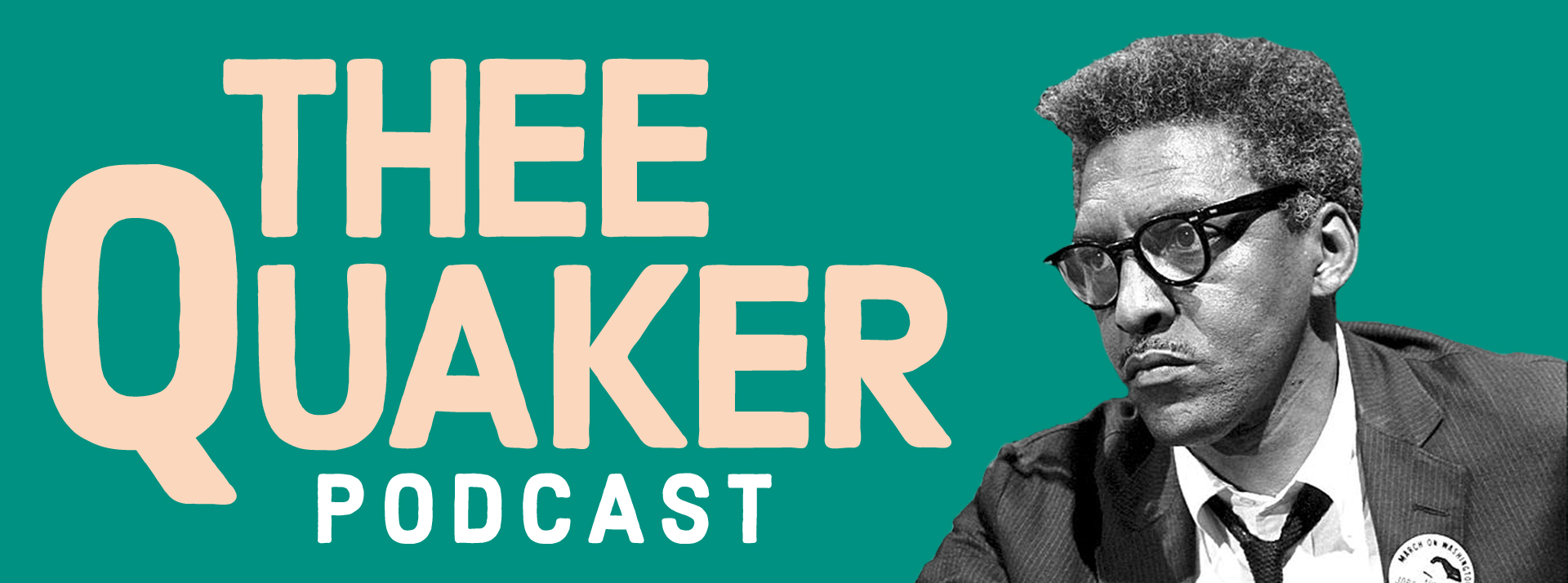

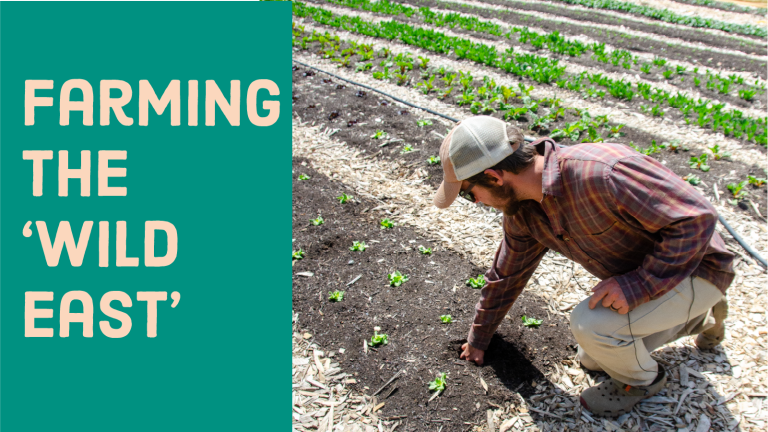
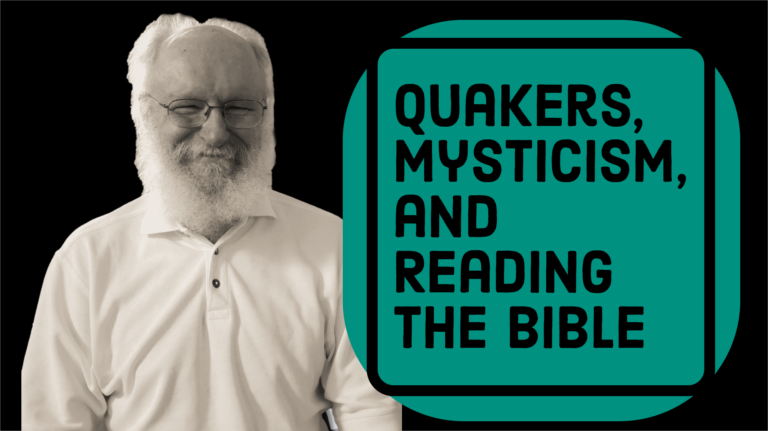
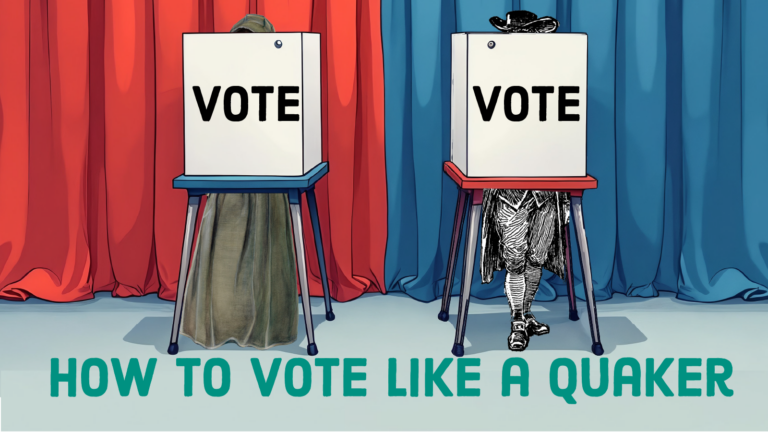
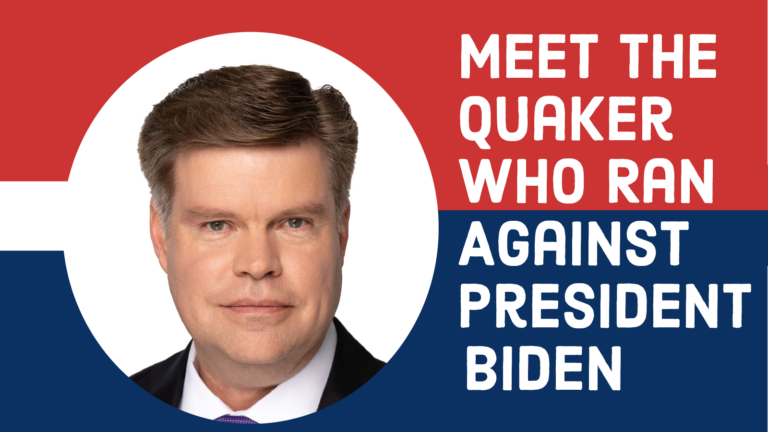
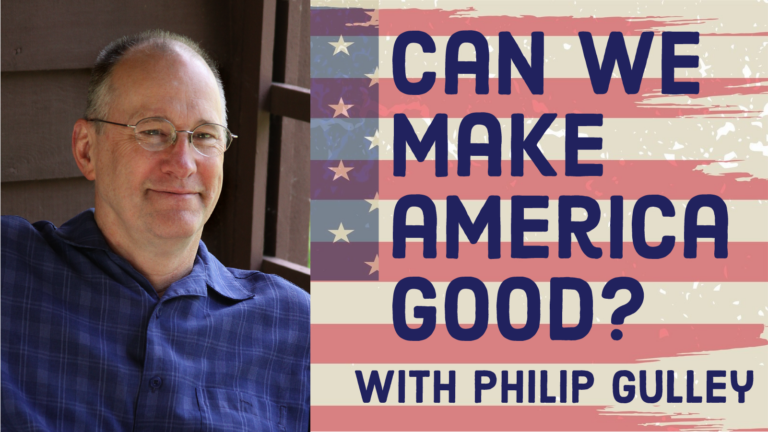
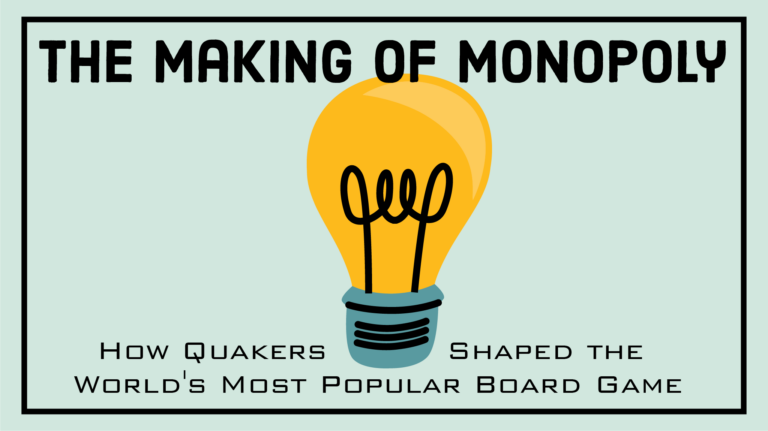
POrtland Friends Meeting sent $75,000 to AFSC for sid to Gaza and the West Bank from our shared Witness Fund. We also released a minute condemning the violence and destruction in Gaza and protesting our complicity in the actions of the US government. It is posted on our website. Thank you for this podcast.
What a disappointment. I was intrigued to hear what a committed pacifist would have to say on the topic. But that is not who this person is. He states, in essence, that Palestinian Arab violence is as morally culpable as Israeli violence. That would not come from the mouth of a committed pacifist. In the end, he sounds almost like a Hamas sympathizer who can’t admit as much. And he calls what’s happening in Gaza “full-on genocide” because Israel’s previous “genocide” was “taking too long.” 40,000 Gazans (according to Hamas!) have been killed in the last year. There are two million Gazans. At that rate, this “full-on” speeded-up genocide will take 60 years to complete. Come on.
I’m sorry. Typo. He states in essence that Palestinian Arab violence is NOT as morally culpable as Israeli violence.
What a typical entitled/racisit/suprmisist/ and delusional look at things! You are going to be more and more disappointed as Israel is exposed to the world being the terrorist and apartheid state that it is!
You are a blind fool to call Israel a terrorist state. What other indigenous people group has been more attacked for wanting to stay alive than the Jews. Get educated!
I wish the comments here would reflect the nuance and care that the producers of this episode took in attempting to cover this difficult topic, and the empathy they demonstrated in their interview. How quickly we went from that to criticism to derision to name calling. In the episode I appreciated hearing a thoughtful person recounting honestly their attempt to make sense of a terrible crisis embedded in a wrought and complicated history of conflict, and to reconcile a deeply felt commitment to pacifism with a realistic and compassionate view towards a people struggling under oppression. I appreciate the courage it took for this podcast to wade into these waters, and I want to encourage us to show the same open-mindedness with each other in discussing their work as they did in bringing it to us.
Sean Jacke – Friend speaks my mind.